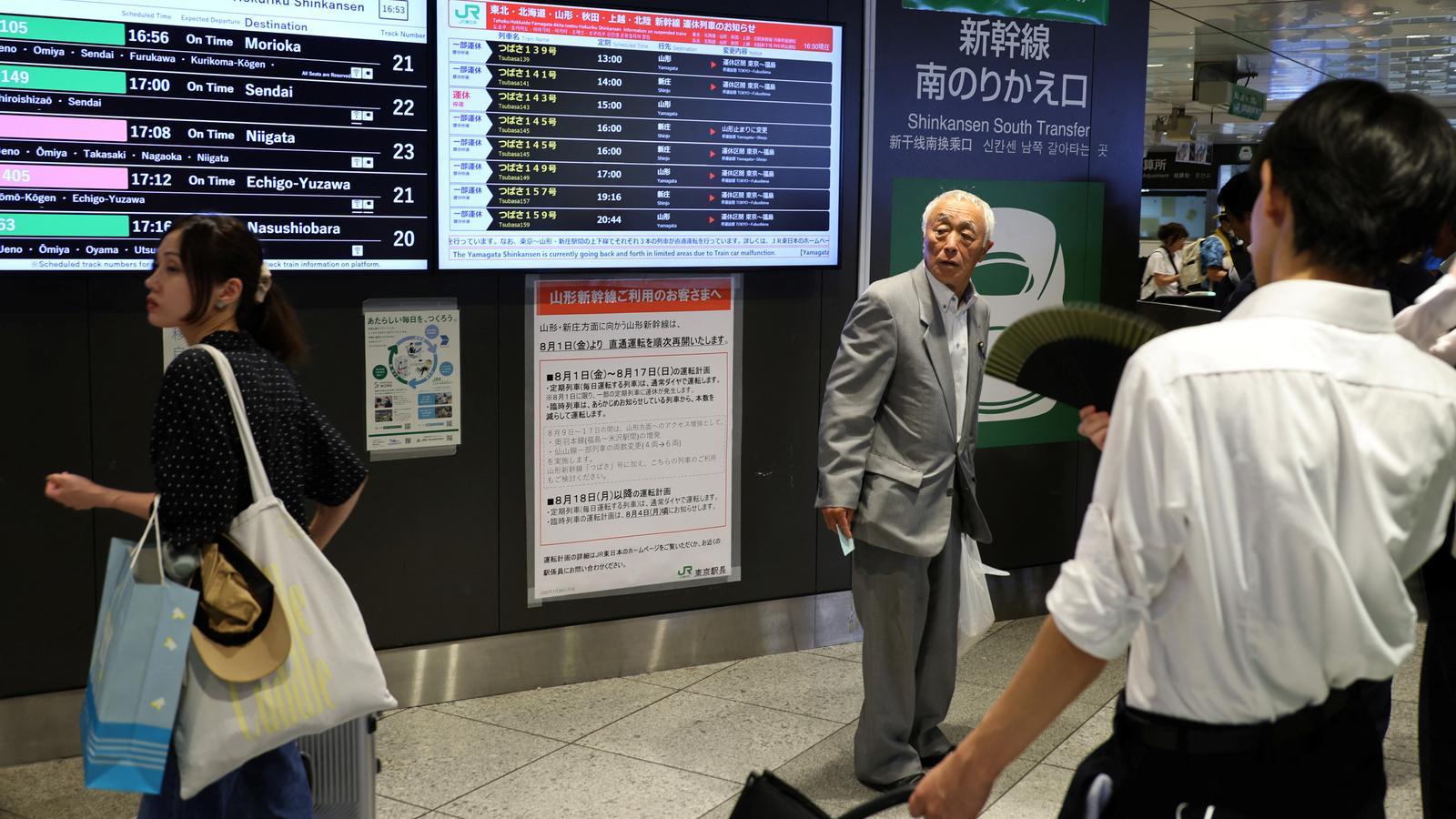"After Fukushima, everyone knows what the alarm sounds": This is how the earthquake in Japan was experienced.
Despite mass evacuations, the Japanese remained calm during the first 'distant tsunami' in 15 years.

Barcelona"When the tsunami warning sounded, we reacted immediately and seriously. After Fukushima, everyone knows what that sound means. The entire neighborhood emptied in minutes: tourists rushed to their hotels, and we, the locals, rushed to the community center," Hiroshi Sato, a resident of Hakodate, one of the cities, told ARA. "From the evacuation center, we followed the news on television and mobile phones until we were told the alert was being lowered and we were able to return home," Sato said. More than fifty shelters had been set up in Hakodate, and more than 4,000 people had been evacuated as of midday, although the earthquake went virtually unnoticed by local residents.
In total, two million people and nearly one million households across 219 municipalities in 21 chiefdoms across Japan have been issued evacuation orders that lasted until 5 p.m. local time. Authorities urged residents to seek shelter in high-rise buildings or away from the coast due to the risk of a distant tsunami, the first to originate outside Japan in 15 years. Wakayama chiefdom recorded the highest number of evacuees, followed by Hokkaido, Kanagawa, and Fukushima. where the 2011 tsunami destroyed the nuclear power plant.
The coastal city of Hakodate, in the Hokkaido province, is a tourist destination for its views of Mount Hakodate, considered one of the best nightscapes in the world. This has forced both residents and tourists to seek refuge in safe places. "We were walking toward the city center when suddenly our cell phone alarm started ringing very loudly. Within minutes, we were directed to a nearby hotel with other foreign tourists who told us there was a tsunami warning," explains Sophie Lambert on the ARA. "For more than three hours we were confined to the hotel until they told us we could return," she says. "What's most surprising is that no one is shouting or getting upset, and even the children are playing peacefully," says this Belgian tourist.
Open wounds
For its part, the operator of the Fukushima plant has urgently halted the planned release of treated radioactive water and evacuated 4,000 workers, activating post-2011 protocols. However, no damage has been detected at the facilities, according to both the company and Chief Secretary to the Government, Hayashi Yoshimasa. However, the episode has reopened some wounds at the headquarters, where the 2011 nuclear disaster left 160,000 displaced and 18,000 dead due to a tsunami.
In Tokyo, the tsunami warning has also forced the suspension of most rail services in the capital's metropolitan area. This disruption to public transport has left hundreds of thousands of people stranded far from home and has generated situations of anguish and uncertainty visible on social media, where pleas for help and testimonies from users who couldn't return home have continued.
“The platforms and tracks at Akabane Station in Tokyo were emptying as the last trains passed through, but the streets were clogged with cars and taxis trying to leave the city and head for Saitama,” John told ARA. Other people complained on X that the disruption to buses and the lack of a clear timeframe for when services would resume meant they would have to spend the night in internet cafes or other public places.
In several prefectures, including Tokyo, Kanagawa, and Saitama, local governments have set up a network of waiting rooms and support points for residents unable to return home. These spaces provide basic services such as access to clean water, toilets, beds, and rest areas, and are often located in establishments identified with special stickers and visible signage. This network of stations is the result of numerous experiences in dealing with natural disasters and a culture that requires preparation for whatever may occur.
Despite the reduced alert level, this new episode has once again tested the response capacity of a country that coexists with nature as a latent threat.
